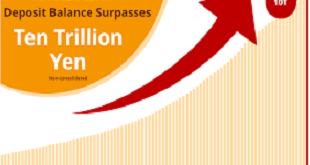Innovative E-commerce
Hiroshi Mikitani established Rakuten as a Japanese online marketplace in 1997. It quickly set itself apart by introducing a novel business model that gave third-party sellers more power. Rakuten, in contrast to conventional e-commerce platforms, adopted a marketplace strategy and permitted individual retailers to establish their own online storefronts on the Rakuten platform.
2000s Virtual Shopping Mall: Rakuten’s inventive methodology was frequently compared to a virtual shopping center where different retailers worked freely however under the Rakuten umbrella. Customers had access to a wide range of goods and services thanks to this model’s creation of a dynamic and diverse market.
Concentrate on Customer Retention: The Rakuten Super Points program was introduced by Rakuten to emphasize customer loyalty. With each purchase, customers received points that could be exchanged for discounts on subsequent transactions. Customers were both attracted to and kept coming back because of this innovative loyalty program.
Cash Back Rewards
Purchasing Ebates in 2014: In 2014, Rakuten made a significant acquisition of Ebates, realizing that cash back and rewards programs were becoming increasingly popular. Offering customers the opportunity to earn money back on their online purchases, Ebates was a pioneer in the cashback industry.
Integration of Rewards from Rakuten: Rakuten rebranded Ebates as Rakuten Rewards after integrating it into its platform following the acquisition. This move made it easier for customers to earn cash back while shopping on the Rakuten platform and broadened Rakuten’s reach in the cash back and rewards industry.
Innovative E-commerce:
- Founding and Early Growth (1997-2000): Rakuten was founded in 1997 by Hiroshi Mikitani as an online marketplace in Japan. It quickly differentiated itself by introducing a unique business model that empowered third-party sellers. Unlike traditional e-commerce platforms, Rakuten embraced a marketplace approach, allowing individual retailers to set up their own online storefronts within the Rakuten platform.
- Virtual Shopping Mall (2000s): Rakuten’s innovative approach was often likened to a virtual shopping mall where various retailers operated independently but under the Rakuten umbrella. This model created a diverse and dynamic marketplace, offering consumers a wide array of products and services.
- Focus on Customer Loyalty: Rakuten emphasized customer loyalty by introducing the Rakuten Super Points program. Shoppers earned points with each purchase, which could be redeemed for discounts on future transactions. This innovative loyalty program played a crucial role in attracting and retaining customers.
Cash Back Rewards:
- Acquisition of Ebates (2014): Recognizing the growing trend of cash back and rewards programs, Rakuten made a significant move by acquiring Ebates in 2014. Ebates was a pioneer in the cashback industry, offering users the opportunity to earn money back on their online purchases.
- Integration of Rakuten Rewards: Following the acquisition, Rakuten integrated Ebates into its platform, rebranding it as Rakuten Rewards. This move expanded Rakuten’s reach in the cash back and rewards space, creating a seamless experience for users who could earn cash back while shopping through the Rakuten platform.
Global Expansion:
Strategic Acquisitions from 2000 to 2010: In order to establish a foothold in important international markets, Rakuten’s global expansion began with strategic acquisitions. Key steps in this direction were the acquisitions of Buy.com in the United States, Play.com in the United Kingdom, and Tradoria in Germany.
Partnerships on a global scale: To increase its global presence, Rakuten formed partnerships with various international brands and businesses. Rakuten was able to cater to a wide range of consumer preferences thanks to these partnerships, which made international trade easier.
Today at Rakuten (2020s): Rakuten had grown into a truly global technology and e-commerce conglomerate by the 2020s. Not only was its platform a major player in the market in Japan, but it also had a significant presence in a number of other nations.
Rakuten, Inc. (also known as Rakuten Kabushiki-gaisha) is a Japanese company. Hiroshi Mikitani founded the Tokyo-based electronic commerce and Internet company “akten]” in 1997. Rakuten Ichiba, its B2B2C e-commerce platform, is the largest e-commerce site in Japan and one of the largest worldwide in terms of sales. The company manages Japan’s largest Internet bank and the highest-valued credit card company. Additionally, it operates in 29 nations and regions and provides e-commerce, fintech, digital content, and communications services to more than 1 billion members worldwide. It is frequently alluded to as “the Amazon of Japan”. Rakuten began expanding outside of Japan in 2005, primarily via acquisitions and joint ventures. Buy.com, which is now Rakuten.com in the United States, PriceMinister, which is now Rakuten.com in France, Ikeda, which is now Rakuten Brazil, Tradoria, which is now Rakuten Deutschland, Play.com, which is now Rakuten.co.uk in the United Kingdom, Wuaki.tv, which is now Rakuten TV in Spain, Kobo Inc., which is now Rakuten Kobo in Canada, Viber, Rakuten Marketing, the company’s online marketing business, is one of its investments, as are Pinterest, Ozon.ru, AHA Life, Lyft, Cabify, Careem, Carousell, and Acorns. To consolidate its Tokyo offices and accommodate future growth, Rakuten moved its corporate headquarters from Shinagawa to the Tamagawa neighborhood of Setagaya-ku in 2015. The company made about US$347.9 million in operating profits and had revenues of US$7.2 billion in 2016. Rakuten stated that it had 14,826 employees worldwide as of June 2017. Rakuten, in place of Qatar Airways, announced a €220 million global sponsorship deal with the Spanish football club FC Barcelona on November 16, 2016, beginning with the 2017–2018 La Liga season and continuing through 2020. FC Barcelona will also use Rakuten’s Viber as its primary means of communication. Rakuten launched a wireless mobile network in Japan in May 2018.Rakuten Ichiba, a B2B2C marketplace, launches with just six employees, one server, 13 merchants, and the strong desire to empower merchants who are small, regional, or perhaps unfamiliar with computers and the internet in an era when everyone seems to be saying that people will not buy things online.
Hiroshi Mikitani established Rakuten in 1997. In the beginning, the company operated an online marketplace known as “Rakuten Ichiba” where third-party sellers could list and sell their goods. Rakuten has expanded its services into a variety of industries over the years.
Business Strategy: E-commerce, travel, banking, credit cards, digital content, and other services are all offered by Rakuten. Through its online marketplace, the company’s business model involves connecting buyers and sellers.
Ichiba Rakuten: Rakuten Ichiba, Rakuten’s flagship e-commerce platform, is one of the world’s largest online marketplaces. Similar to other major e-commerce platforms, it offers a wide range of goods and services.
Expansion globally: Although Rakuten was founded in Japan, the company has grown internationally through partnerships and acquisitions. To expand its international reach, the company has invested in and acquired numerous international businesses.
Rewards and Cash Back Programs at Rakuten: Rakuten’s cashback and loyalty programs are well-known. By making purchases through the Rakuten portal, customers can earn cashback rewards and Rakuten Super Points, a loyalty program.
Acquisitions: Rakuten has made a number of strategic acquisitions, including the purchase of the messaging app Viber, the establishment of Rakuten Mobile, the e-reader platform Kobo, and the company itself.
Mobile Rakuten: With the launch of Rakuten Mobile, Rakuten entered the telecommunications sector in addition to its primary e-commerce business. The company has used novel strategies like virtualization and cloud-based infrastructure to try to break into the mobile market.
Wallet of Rakuten: Through Rakuten Wallet, Rakuten provides financial services and a digital wallet for managing transactions and payments.
TV Rakuten: Rakuten provides a platform for users to watch movies and television shows through its video-on-demand streaming service known as Rakuten TV.
Philosophy: Rakuten’s distinctive corporate philosophy includes concepts like “empowerment” and “omotenashi,” which refers to hospitality and customer service in Japanese.
Rakuten’s diverse portfolio demonstrates its commitment to providing a wide range of services to consumers and businesses, and it has grown into a major player in the global e-commerce and technology landscapes.
In 2018, Rakuten France was one of the four initial signatories of the ambitious Product Safety Pledge issued by the European Commission. The pledge is currently growing. We recently signed Digital Consumer Rights Commitments with 11 additional marketplaces in the European Parliament in Brussels with EU Commissioner Didier Reynders. Signatories committed, in addition to other things, to work on customers’ admittance to one side of withdrawal, straightforwardness about powerhouse’s business ties and guaranteeing that item audits are authentic. Rakuten has long prioritized product safety. We regularly check the Safety Gate website of the European Union and the French Consumer Protection website for recalls. We added keywords to warn us of attempts to post hazardous goods. To ensure the safety of our market, we collaborate with customs authorities and other retailers in addition to our own internal actions. We block a product when customs blocks it. Contacting us is simple if you come across a product that could be hazardous.
The expanded EU Pledge is a chance to strengthen our partnerships. We have been collaborating with consumer organizations in Europe on a Pilot Project to identify hazardous products since March. We hope that this Pilot can become an official and more long-term part of the Pledge.


